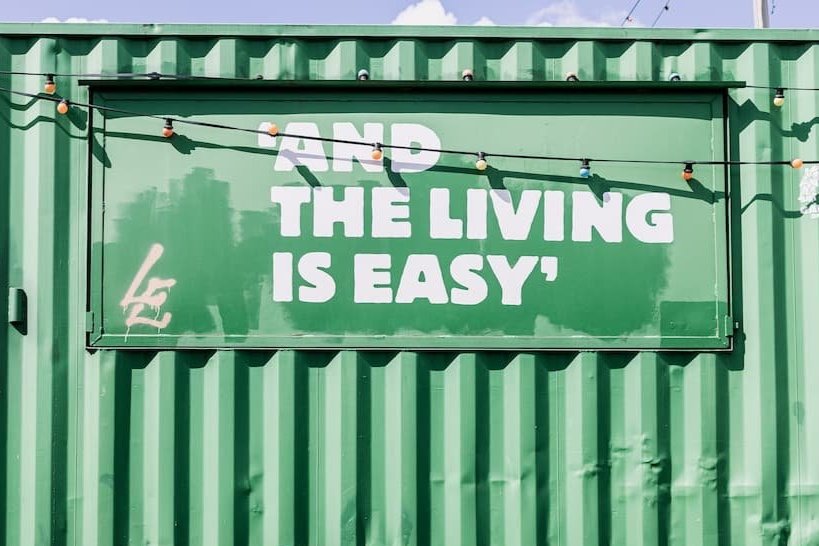Why Staying Productive Is So Exhausting
There was a time in my career where I took a loooottt of one-off personal days.
I wasn't sick. I was getting plenty of sleep.
But I'd wake up and just couldn't go into work.
There seems to be a lot of this going around lately. You've seen people saying:
"I just couldn't do it this week."
"I've been trying to stay productive, but..."
"It feels like I'm moving through molasses."
What's behind all of this?! Why are so many people feeling like they're a shadow of their pre-pandemic productive selves?
The answer: They’re coping. And it's exhausting.
Coping energy, or as I call it "grinding" energy, can be a great asset in the short-term.
You're able to move forward, adapt, and get out of bed every day despite constant roadblocks, fire drills, and unexpected events.
But it comes at a cost. Because it comes from a place of dealing with less-than-ideal circumstances:
People you're not crazy about working with,
Work that's not really that fulfilling,
Feeling disconnected from flow and creativity,
Looming career and life milestones.
(Also existential crises, like global pandemics, climate change, and war.)
Some of us are really good at making the best whatever life throws at us.
For much of my career, I was INCREDIBLY “productive” despite unideal circumstances. But the circumstances—being in a career that didn’t fit—was crushing my soul.
Our shared experience during the pandemic has shined a light on the collective stress we’re under.
Some of those stresses were magnified by the pandemic…
Parents became full-time day care providers and teachers. Grocery shopping became (even more) stressful. Our physical movements were literally restricted. We couldn’t touch or sometimes even see our friends and family.
Some existing stresses were simply exposed by the pandemic…
For many, COVID caused people to take a good, hard look at their careers: how much they work, how well they’re paid (or not), and how much they’re valued.
Others opted for quick fixes, hoping a sabbatical, move, or working from home would improve things. (Did it?)
What Are You Tolerating?
We’re typically less aware of the daily ways we rationalize, cope, and tolerate in our careers and lives because we’re conditioned to, well, tolerate a lot less than what we actually want.
When you’re coping, it's common to take on responsibility not just for yourself but for the thoughts, feelings, and actions of a wholllllle lot of other people.
You might really be focused on controlling outcomes.
You might be overly concerned with someone else’s behavior, decisions, or follow-through.
I can usually tell I’m taking on responsibility for other people because I actually feel the "weight" of that responsibility in the form of pain and tightness in my left shoulder.
You might be really good at “letting go” of disagreements, hurts, frustrations and really anything that gets in your way of forward progress.
You might be extremely “productive” and accomplish a ton.
All of that takes a ton of energy.
It's that feeling of pushing through to the finish when you have nothing left in the tank.
This is what I mean by “grinding.”
It's one of the most predominant energy levels I see in people that come to me for coaching.
They're still moving forward: hitting milestones, taking action, but they're exhausted.
One client called it her "ambivalence zone"--work wasn't toxic but she wasn't thriving either, driven by productivity instead of the deeper alignment, fluidity, and sense of calm she craved.
It's insidious because it disguises itself. You might find yourself saying, "It's fine. It's not that bad. Could be worse. It’s like this everywhere."
Narrator: It is NOT like this everywhere.
Coping Is Peak Settling-Mode With Long-term Consequences
Coping is peak settling-mode, tolerating less than what you know is possible, working below your full potential.
As long as you’re pushing through, you’re not truly dealing with the deeper emotions about your less-than-ideal circumstances. So they’re just kind of laying in wait, ready to emerge until one day you…just…can’t…get out of bed.
Coping is great in a crisis and very ineffective over the lifetime of a career.
Most of us don't even realize we're doing it. Until it's too late.
In my case, I tolerated, tolerated, tolerated, until I had to take a day off. Then I ran the whole pattern again--until I burned out.
It might show up differently for you, but the pattern is the same, you go go go until you hit a wall.
And it's often frustrating because you can't really point to anything external that's causing it.
"At least I have a paycheck, good healthcare, I get to work from home..."
Oh, man. There is SO MUCH MORE available to you than just the basics.
The first step is to recognize it. Do you even see where you're tolerating, coping, or rationalizing why you don't yet have the career and life you truly want?
Have you stopped to think about what that looks like? And what would change for you if you stopped tolerating long enough to go after it?
Too many people stay in that place of feeling like there's work that's a better match for who they are but settling for just okay.
The good news is that it's possible to thrive. There's a much easier way to get the same--and often better--results with a sense of ease, calm, connectedness, and belonging.
Check out this video and move from coping mode to thriving in your career. Staying productive is exhausting. I invite you to commit to different measures.
Ready for a career that matches who you are?
Grab the free guide: 4 Steps to Take Back Your Life and Design a Career with Purpose
Learn how to work through the right options for you and find opportunities you didn't even know were possible.
Author Bio:
Before becoming a coach, Caroline worked in management consulting and financial services. She's made it her mission to help people grow, contribute, and get wherever they want to go.
The life and career you want really is possible once you have the roadmap. Take the first step by downloading your free guide: 4 Steps To Take Back Your Life and Design a Career With Purpose.
































